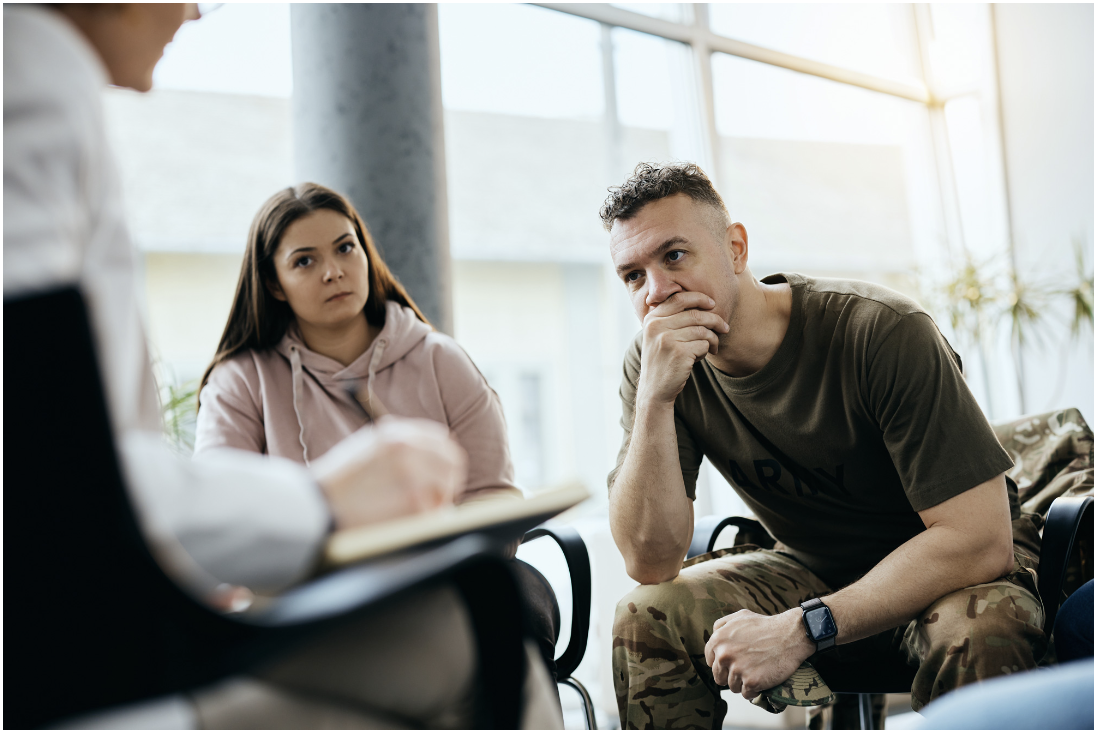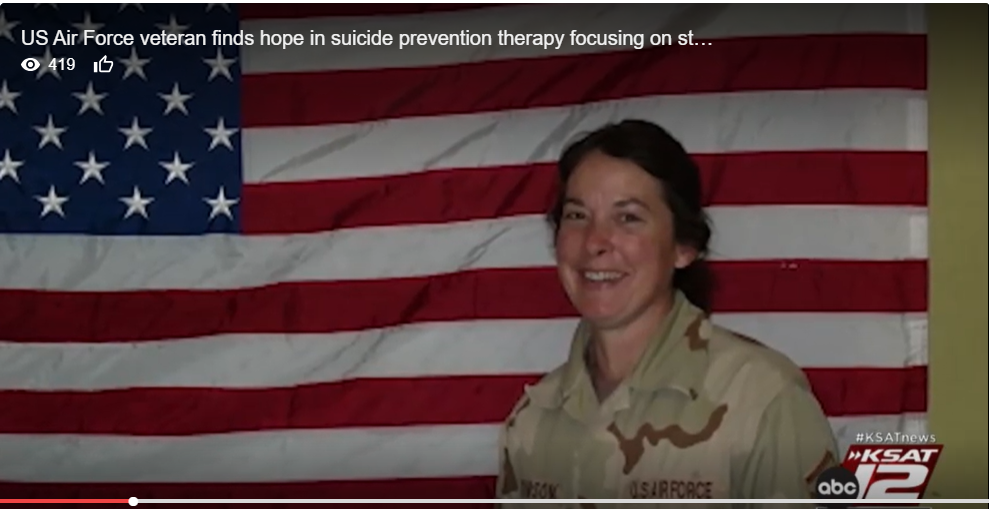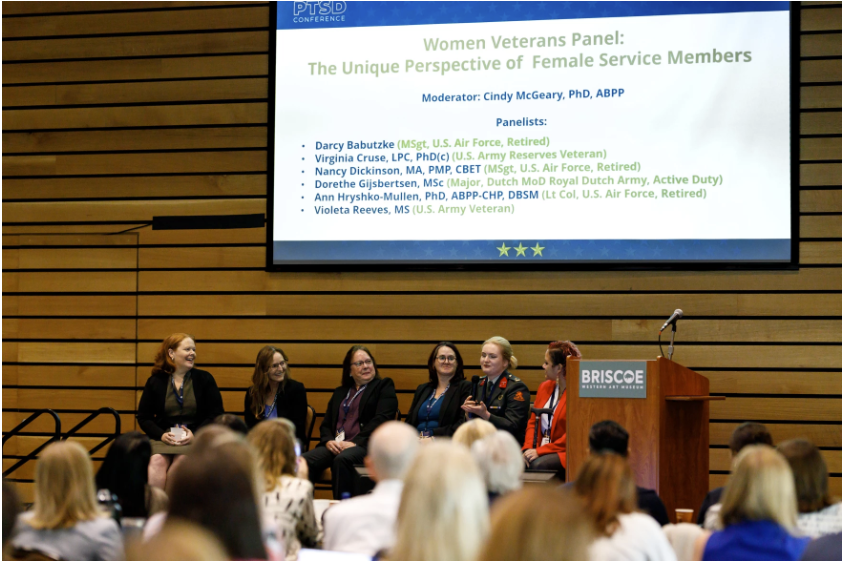Study Offers Hope in Preventing GI Suicides
San Antonio Express-NewsFebruary 13, 2015
STRONG STAR Consortium researchers were part of a breakthrough study finding that short-term cognitive behavioral therapy dramatically reduces suicide attempts among at-risk military personnel. The study found that soldiers receiving CBT were 60 percent less likely to make a suicide attempt during the 24-month follow-up than those receiving standard treatment. The results were published online on Feb. 13, 2015, by The American Journal of Psychiatry. The San Antonio Express-News interviewed STRONG STAR director Alan Peterson, PhD, ABPP, who was a co-investigator on the study. (Access to article may require paid subscription.)
Study finds that short-term psychological therapy dramatically reduces suicide attempts among at-risk soldiers
UT Health San Antonio news releaseFebruary 13, 2015
Short-term cognitive behavioral therapy dramatically reduces suicide attempts among at-risk military personnel, according to findings from a research study that included investigators from the STRONG STAR Consortium at The University of Texas Health Science Center at San Antonio.
Local Treatment Hoping to Help Veterans with PTSD
Fox 29, KABB-TV, San Antonio, and News 4, WOAI-TV, San AntonioNovember 12, 2014
The STRONG STAR PTSD Consortium at the UT Health Science Center is a world leader in research aimed at improving prevention, diagnosis, and treatment of combat-related posttraumatic stress disorder. A new study looks at ways to improve access to therapy by comparing traditional in-office treatment, with treatment delivered in the patient’s home either in-person or via video teleconference. (Link to story no longer available.)
Battling war’s psychological wounds
UT Health San AntonioNovember 12, 2014
Alan Peterson, Ph.D., ABPP, a retired Air Force lieutenant colonel, used his experience to build a world-class research network to improve prevention and treatment of combat-related PTSD. (Link to story no longer available.)
“Redeployment” by Phil Klay and the Responsibility of Wartime Storytelling
The Rivard ReportOctober 31, 2014
The STRONG STAR Consortium partnered with the Center for Medical Humanities & Ethics and the Health Science Center Libraries to present Marine-turned-author Phil Klay on Thursday Oct. 30 at the UT Health Science Center at San Antonio.
UT Health Science Center San Antonio to study alternatives to pain medication for returning vets
Texas Public RadioSeptember 26, 2014
Dr. Donald McGeary of The University of Texas Health Science Center at San Antonio will use a $2.78 million grant from the National Institutes of Health to launch a new STRONG STAR-affiliated research study investigating a novel treatment for veterans with chronic pain. The treatment involves an integrated program to improve physical function and decrease rates of opioid use among combat veterans with multiple injuries.
Federal research seeks alternatives to addictive opioids for veterans in pain
The Washington PostSeptember 25, 2014
A STRONG STAR-affiliated study is part of a group of federally funded grants to explore nondrug approaches to managing pain and related health conditions among military personnel, veterans, and their families. The Washington Post reports on these grants, which include $2.78 million to Dr. Donald McGeary at the UT Health Science Center San Antonio. His STRONG STAR-affiliated study will evaluate the effectiveness of an integrated program to improve physical function and decrease rates of opioid use among combat veterans with multiple injuries.
San Antonio PTSD study is first of its kind: Offers therapy delivered in patients’ homes
KSAT-TV, San AntonioSeptember 25, 2014
San Antonio’s ABC affiliate KSAT-12 reports on a STRONG STAR-affiliated study evaluating novel methods of delivering PTSD therapy to service members and veterans. The study compares traditional in-office treatment with therapy delivered in the home, either in person or via video teleconference similar to Skype. The goal is to maintain or even improve the quality of treatment while increasing access to care. (Link to story no longer available.)
The DoD partners with the VA to advance research on TBI and PTSD
Department of Defense, Congressionally Directed Medical Research ProgramsSeptember 23, 2014
This Web highlight posted by the Department of Defense (DoD) features the purpose and progress of two research consortia jointly funded in 2013 by the DoD and the Department of Veterans Affairs (VA) to address the two most prominent health concerns affecting service members and veterans today: traumatic brain injury (TBI) and posttraumatic stress disorder (PTSD). These consortia include the Chronic Effects of Neurotrauma Consortium (CENC), which is focused on TBI, and the Consortium to Alleviate PTSD, which builds upon the infrastructure and programs already in place through STRONG STAR to create the largest PTSD research consortium in history.
UTSA, UT Health Science Center Present Inaugural SALSI Lecture Sept. 23
University of Texas at San Antonio, University of Texas Health Science Center at San Antonio joint news releaseSeptember 17, 2014
Alan Peterson, Ph.D, director of the STRONG STAR Consortium and director of the Consortium to Alleviate PTSD., will speak on the topic “It’s All About the Blast: PTSD and TBI after Combat Blast Explosions” at 4 p.m., Tuesday, Sept. 23, at the John Peace Library on the University of Texas at San Antonio Main Campus for the first lecture of the UTSA and the University of Texas Health Science Center at San Antonio’s joint lecture series supported by the San Antonio Life Science Institute.




